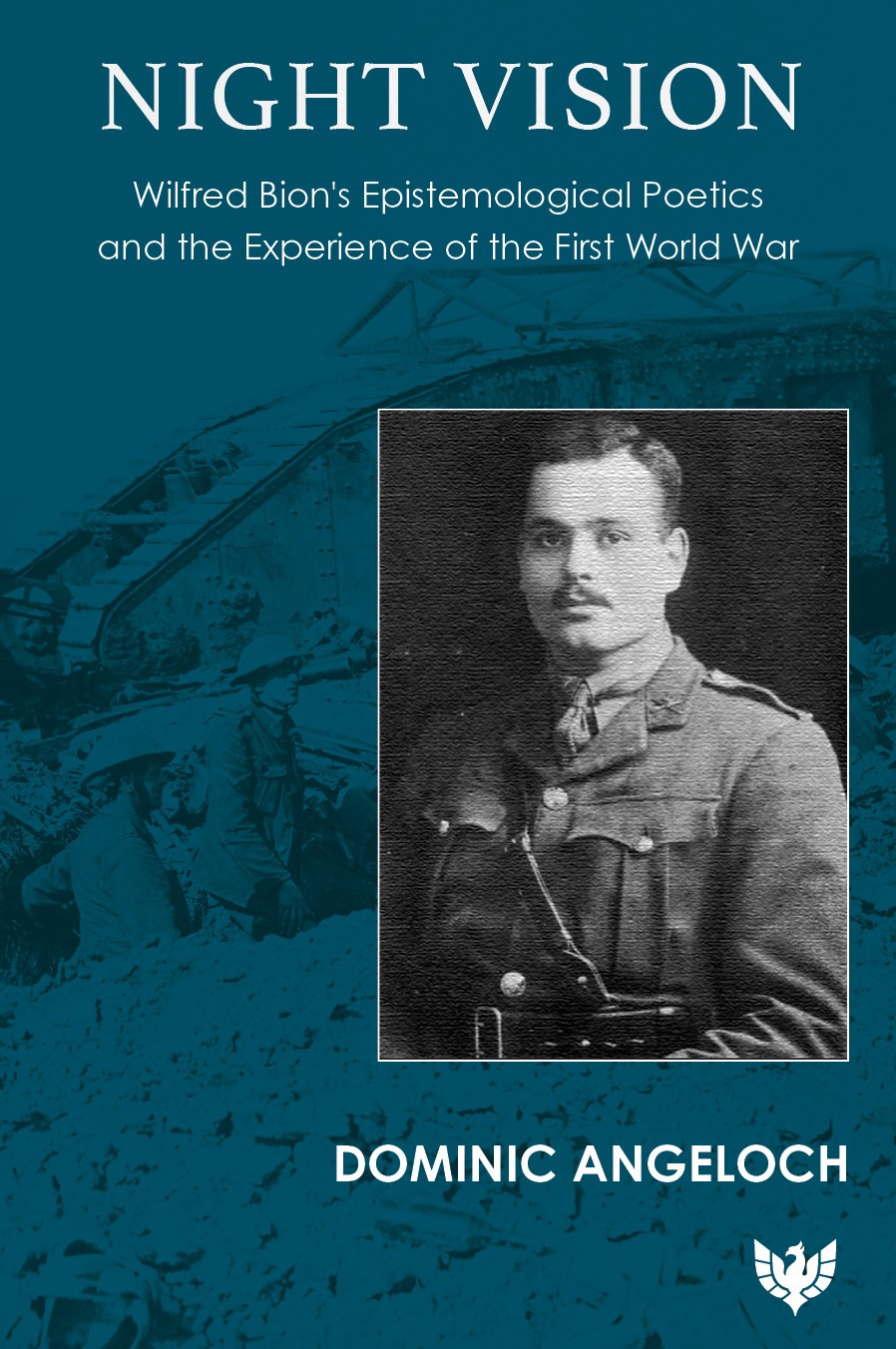Night Vision: Wilfred Bion's Epistemological Poetics and the Experience of the First World War

Book Details
- Publisher : Karnac Books
- Published : 2025
- Cover : Paperback
- Pages : 248
- Category :
Psychoanalysis - Catalogue No : 98092
- ISBN 13 : 9781800133112
- ISBN 10 : 1800133111
Reviews and Endorsements
This remarkable text considers the almost impossible dialectic between traumatic experience and written text. It deals with Bion’s personal struggle, all his life, to manage his unmanageable war experience. It is traced through his various expositions, especially his literary/autobiographical writing. In the process, Dominic Angeloch accepts the challenge of capturing and expressing Bion’s distress in the wider and impressive landscape of historical and poetic cultures.
R. D. Hinshelwood, University of Essex
Most books about Wilfred Bion refer to his theories and how he integrates Freud and Melanie Klein. Dominic Angeloch goes beyond this unifying reading. He enriches these views by Bion’s paradoxical instruction for therapists to have “no memory, no desire” alongside another recommendation for “thinking under the fire”, which becomes most instructive. It refers to Bion’s memory of horrible war experiences. A new level of Bion studies is achieved by integrating epistemology, art, and biographical perspective. This book leads us to enter the dark and the unknown so we are “seeing Bion’s darkness”. It was a serious omission from our understanding of Bion but now you hold it in your hands.
Professor Dr Michael B. Buchholz, International Psychoanalytic University (IPU), Berlin, Germany
In the expanding body of literature on Bion and his thought, a careful, in-depth examination of his autobiographical writings has long been missing—until now. With both authority and heartfelt engagement, this book fills that void, drawing readers deep into Bion’s narrative style, especially when he ventures into profoundly personal territory and revisits the most dramatic chapters of his life. From the wrenching separation from his mother in India to his harrowing wartime experiences at the age of eighteen, we gain invaluable insight into his psychoanalytic vision and the singular way he approached the world. As these pages unfold, we are not merely introduced to the private dimensions of Bion’s lived experience; we are offered a key to understanding the very heart of his psychoanalytic thought—a conceptual framework centred on emotional experience, the unknown, and the infinite. Night Vision: Wilfred Bion's Epistemological Poetics and the Experience of the First World War further illuminates the depth of Bion’s ethical commitment and his fierce repudiation of any “religion” disguised as psychoanalysis. I cannot recommend this extraordinary work highly enough. It stands as the finest introduction I know to the man himself—his character, his personality, and the enduring legacy of his thought.
Giuseppe Civitarese, author of On Arrogance: A Psychoanalytic Essay
What does it mean to write one’s life interminably yet be unable to tell it? This question is central to the work of Wilfred Bion, one of the most significant psychoanalysts of the twentieth century, and one he endured in repeated attempts to narrate his catastrophic experience of “psychic death” as a tank commander in the First World War. In this extraordinary study, comparable to W. G. Sebald’s On the Natural History of Destruction, Dominic Angeloch, an expert in comparative literature and on Bion, gives compelling narrative analyses of Bion’s different versions of his central trauma. In this, Angeloch pursues a “poetics of cognition”: What form of words can be used to describe the experiences we are unable to think? And what can literature reveal to us of the ways we have grappled more broadly to narrate a catastrophic modernity?
Matt Ffytche, editor of Psychoanalysis and History, co-editor of Psychoanalysis in the Age of Totalitarianism

